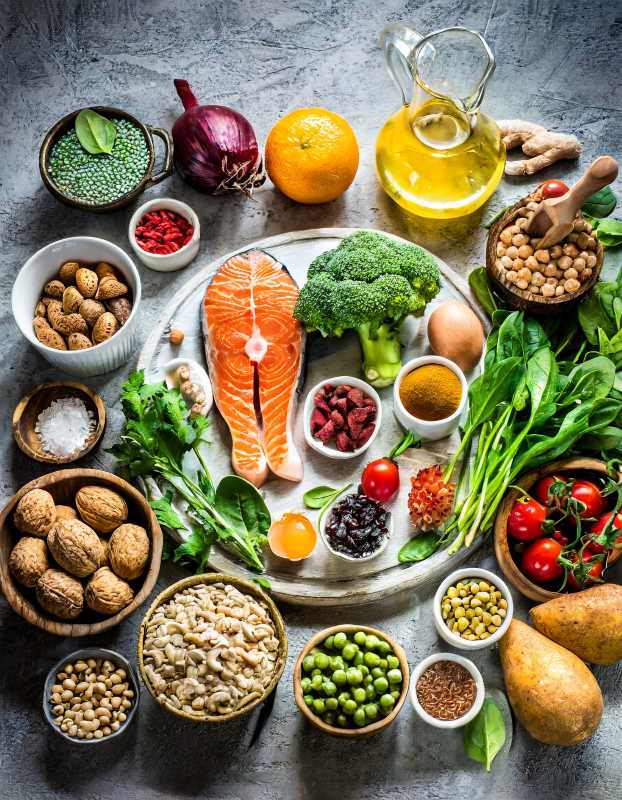The Vital Role of Diet and Nutrition in Aging Gracefully
In Mexico, the elderly face a dual challenge of obesity and malnutrition. Adequate nutrition is crucial, with tailored calorie and protein intake, along with key micronutrients. A balanced diet and professional guidance can help older adults lead healthier, more fulfilling lives.

Aging is an inevitable part of life, bringing with it a myriad of changes that can impact our overall well-being. As we grow older, we encounter reduced metabolism, loss of muscle mass, alterations in nutrient absorption, decreased appetite, and often the presence of chronic diseases.
These changes make older adults more vulnerable to nutritional deficiencies and imbalances in macronutrient intake. In this article, we'll delve into the importance of diet and nutrition for the elderly, with a particular focus on the situation in Mexico.
Mexico grapples with a significant health challenge, as it has a staggering 74.5% prevalence of overweight and obesity, primarily due to excessive caloric intake. Simultaneously, a growing number of older adults face a different problem—malnutrition. Currently, between 30.3% and 50% of older adults in Mexico are at risk of malnutrition, a condition strongly associated with an increased risk of ailments like sarcopenia, which leads to hospitalizations, infections, and higher mortality rates among the elderly.
Malnutrition in older adults typically stems from inadequate consumption of foods that contribute essential macronutrients. Several socioeconomic, functional, and health factors contribute to this issue. Dietary analyses reveal poor consumption of iron and B vitamin-rich foods among older adults, leading to low levels of serum hemoglobin, and a concerning prevalence of anemia. Moreover, studies have documented deficiencies in vitamins E and D in this age group, highlighting a pressing issue of poor nutrition among older Mexican adults.
Addressing the Issue
The risk of malnutrition and its associated health concerns can be mitigated through strategic dietary recommendations and nutritional guidance. It's crucial for healthcare professionals to pay special attention to improving and maintaining good nutritional status among older adults.
Energy requirements decrease with age due to reduced physical activity and basal metabolism. For example, women over 60 years old are recommended to consume 1,600 to 2,200 kcal per day, while men should aim for 2,000 to 2,600 kcal per day. In Mexico, a recommended equation for estimating energy requirements is:
Total energy requirement, kcal/day = [223.4 + (27.9 × body weight, kg) + (239.7 × sex)], where sex: Men = 1 and Women = 0.
Once caloric needs are determined, adhering to the “Plato del Bien Comer” or the new healthy and sustainable dietary guidelines for the Mexican population 2023 is advisable. Alternatively, consulting a nutrition professional to develop a tailored meal plan that covers all food groups is highly recommended. Protein intake should range from 1.2 to 1.5 grams per kilogram of body weight, ensuring even distribution over three meals.
Older adults require more dietary protein than their younger counterparts, as anabolic resistance to protein synthesis is common. Consuming 25–30 grams of high-quality dietary protein at each meal can maximize protein synthesis and help maintain a robust immune system, aiding recovery from infectious diseases and wounds.

Key Micronutrients for the Elderly
In addition to protein, older adults require a higher intake of micronutrients such as calcium, iron, and vitamins B12, C, and D. Animal-derived foods like meats and dairy products, rich in protein, are also valuable sources of these essential nutrients. Calcium intake should be between 1,000 and 1,200 mg per day, while vitamin D levels can be achieved with 20-25 µg/day or 800-1,000 IU/day.
Aim to meet your daily calorie and nutrient requirements by following the U.S.-style dietary pattern for older adults, as outlined in the Dietary Guidelines for Americans, 2020-2025. These menus are meticulously designed to cover a broad spectrum of energy levels while ensuring the daily or weekly servings of various food groups are met. If it's discovered that a particular nutrient isn't being met through food alone, the use of nutritional supplements is recommended under the guidance of a healthcare professional in nutrition, medicine, or geriatrics.
In conclusion, the aging process is inevitable, but it doesn't mean we have to compromise our health and well-being. By paying close attention to diet and nutrition, older adults can lead fulfilling lives, staying active, and reducing the risk of malnutrition and associated health issues. It's never too late to make healthy dietary choices that will contribute to aging gracefully and with vitality.
In-Text Citation: Oficina de Prensa y Colaboradores. ‘Nutrientes claves para la nutrición y la salud del adulto mayor’. Centro de Investigación en Alimentación y Desarrollo (CIAD), 6 Oct. 2023, https://www.ciad.mx/nutrientes-claves-para-la-nutricion-y-la-salud-del-adulto-mayor/.




